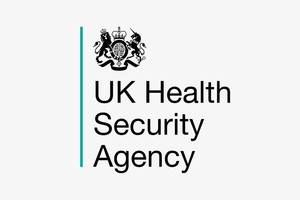Crimean-Congo haemorrhagic fever case identified in England, following travel to Central Asia
Latest updates on a case of Crimean-Congo haemorrhagic fever identified in England.

Latest
The UK Health Security Agency (UKHSA) can confirm that the monitoring periods, for contacts of the Crimean-Congo haemorrhagic fever case who required active monitoring, have now been completed.
No further cases have been identified. We would like to thank our partners in the NHS for their prompt action and all of the contacts for their cooperation.
Previous
Friday 25 March 2022
UKHSA can confirm that a case of Crimean-Congo haemorrhagic fever (CCHF) has been confirmed in England. The woman had recently travelled to Central Asia.
CCHF is a viral disease usually transmitted by ticks and livestock animals in countries where the disease is endemic.
The patient was diagnosed at Cambridge University Hospitals NHS Foundation Trust and is receiving specialist care at the Royal Free Hospital in London.
Dr Susan Hopkins, Chief Medical Advisor at UKHSA said:
It’s important to be aware that CCHF is usually spread by tick bites in countries where the disease is endemic, it does not spread easily between people and the overall risk to the public is very low.
We are working with NHS EI to contact the individuals who have had close contact with the case prior to confirmation of their infection, to assess them as necessary and provide advice.
UKHSA and the NHS have well established and robust infection control procedures for dealing with cases of imported infectious disease and these will be strictly followed.
Dr Sir Michael Jacobs, consultant in infectious diseases at the Royal Free London, said:
The Royal Free Hospital is a specialist centre for treating patients with viral infections such as CCHF. Our high level isolation unit is run by an expert team of doctors, nurses, therapists and laboratory staff and is designed to ensure we can safely treat patients with these kind of infections.
Prior to this case, there have been 2 cases of CCHF imported to the UK, in 2012 and one in 2014. There was no evidence of onward transmission from either of these cases.
The principal carriers of CCHF are Hyalomma ticks, these are not established in the UK and the virus has never been detected here in a tick.
People living in or visiting endemic areas should use personal protective measures to avoid contact with ticks, including:
- avoiding areas where ticks are abundant at times when they are active
- using tick repellents
- checking clothing and skin carefully for ticks
Updates to this page
-
Added latest update.
-
First published.